February 15, 2021 •
Montana Governor Repeals Directives Made By Former Governor
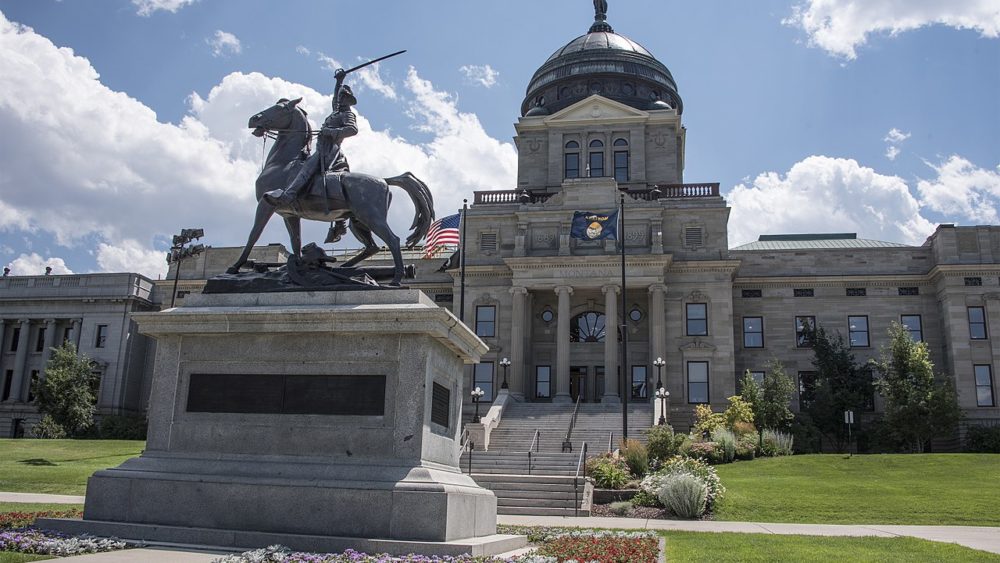
Montana Capitol Building - gillfoto
Montana Gov. Greg Gianforte repealed two executive orders issued by former Gov. Steve Bullock. Executive Order 15-2018 required companies to report political spending if they wanted to bid on large state contracts. The order also required companies bidding for certain […]
Montana Gov. Greg Gianforte repealed two executive orders issued by former Gov. Steve Bullock.
Executive Order 15-2018 required companies to report political spending if they wanted to bid on large state contracts.
The order also required companies bidding for certain state contracts to disclose political donations made within 60 days of an election.
The second order allowed county election clerks to expand voting by mail for the November general election to help prevent the spread of the coronavirus.
The order also required counties to offer in-person voting, but it did not require polling places to be open on election day.
December 8, 2020 •
Commissioner of Political Practices Increases Lobbyist Threshold Amount

Montana Capitol Building - gillfoto
The threshold amount a lobbyist can earn to trigger lobbyist registration in Montana will increase. The Montana Commissioner of Political Practices received approval for this increase to take place. The threshold amount for 2021 is $2,650, effective January 1, 2021.
The threshold amount a lobbyist can earn to trigger lobbyist registration in Montana will increase.
The Montana Commissioner of Political Practices received approval for this increase to take place.
The threshold amount for 2021 is $2,650, effective January 1, 2021.
September 1, 2020 •
Judge Upholds Montana Gov’s Political Spending Disclosure Rule
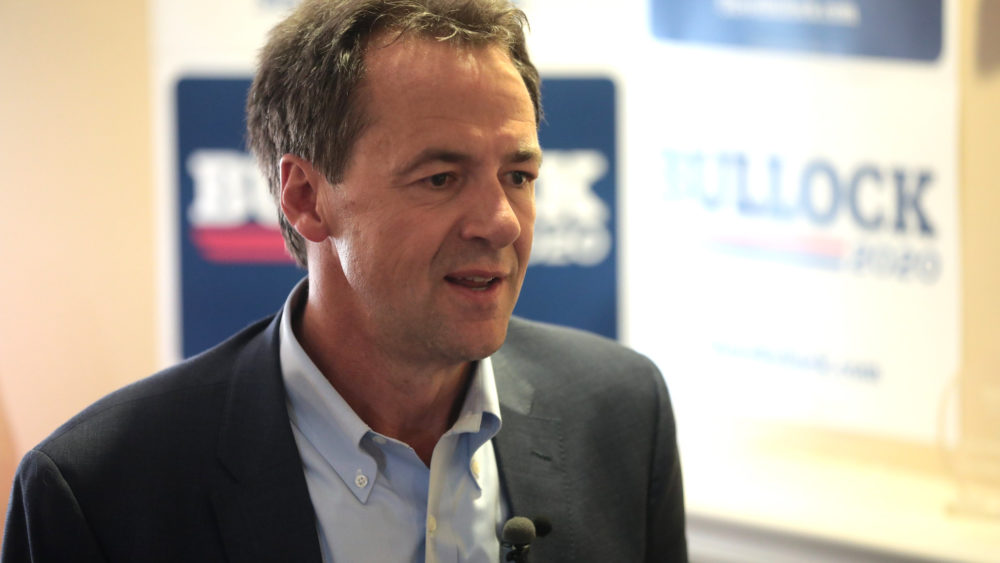
Montana Gov. Steve Bullock - Gage Skidmore
A federal judge on Monday upheld an executive order by Gov. Steve Bullock requiring companies to report political spending if they want to bid on large state contracts. U.S. District Judge Charles Lovell ruled the Illinois Opportunity Project does not […]
A federal judge on Monday upheld an executive order by Gov. Steve Bullock requiring companies to report political spending if they want to bid on large state contracts.
U.S. District Judge Charles Lovell ruled the Illinois Opportunity Project does not have the legal standing to challenge the governor’s 2018 order requiring reporting of contributions even to so called dark money groups.
Judge Lovell had dismissed the complaint in January due to lack of standing.
However, he gave the Illinois Opportunity Project another chance to prove the executive order would cause it to suffer an actual or imminent, as opposed to hypothetical, loss of a legally protected right.
Under Bullock’s order, companies submitting bids for contracts valued at more than $25,000 for services or $50,000 for goods must disclose two years’ worth of political spending if the spending exceeds $2,500.
The order allows Montana to bring transparency to spending by groups classified as social welfare organizations under the federal tax code.
August 7, 2020 •
Governor Allows Counties to Hold All-Mail Election in November
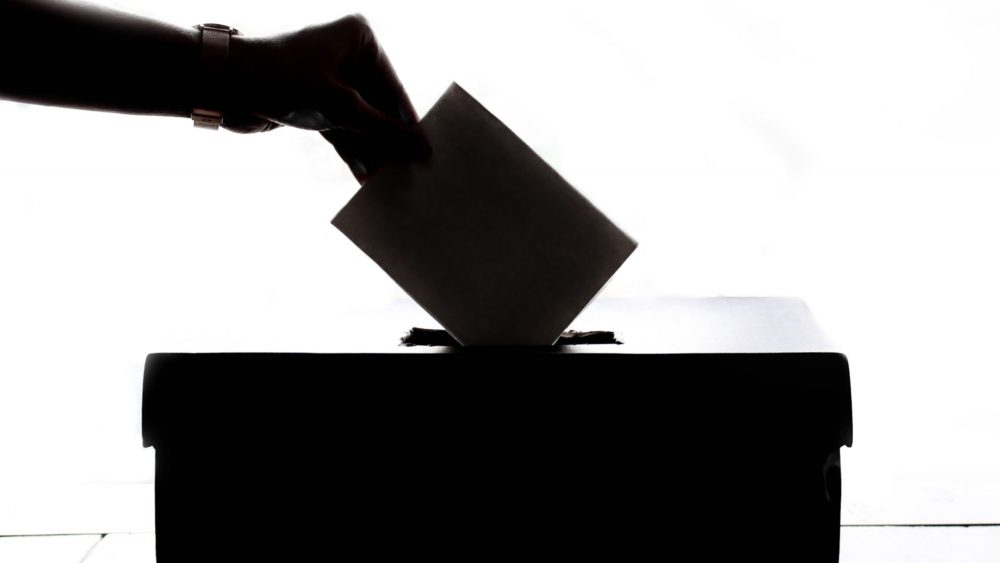
Gov. Steve Bullock announced Thursday Montana counties have the option to hold the November general election by mail. If counties decide to hold a mail-in ballot election, ballots will be sent on October 9. Return postage will be provided. Voters […]
Gov. Steve Bullock announced Thursday Montana counties have the option to hold the November general election by mail.
If counties decide to hold a mail-in ballot election, ballots will be sent on October 9.
Return postage will be provided.
Voters will still be able to vote in-person if they choose.
Gov. Bullock allowed counties to hold a mail-in ballot primary election in June.
Ultimately, all 56 counties used mail ballots for the primary, which had record turnout.
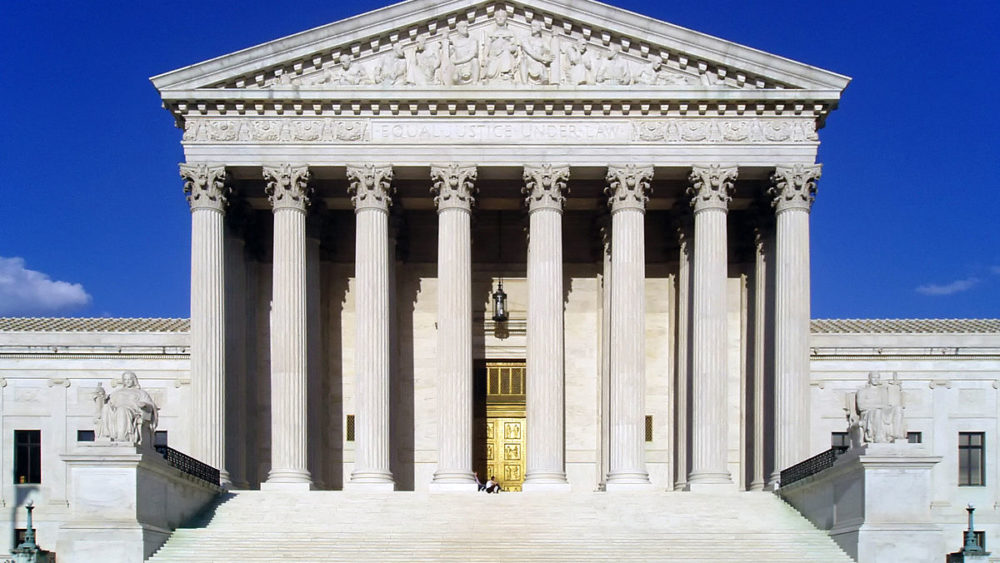
United States Supreme Court Building
The U.S. Supreme Court on Monday declined to take up a case challenging a Montana disclosure law. Specifically, the law requires disclosure of spending for political ads within 60 days of an election. In August 2019, the 9th U.S Circuit […]
The U.S. Supreme Court on Monday declined to take up a case challenging a Montana disclosure law.
Specifically, the law requires disclosure of spending for political ads within 60 days of an election.
In August 2019, the 9th U.S Circuit Court of Appeals upheld Montana’s law requiring nonprofit groups running ads mentioning candidates, political parties or ballot issues in the 60 day window before an election to report any spending of $250 or more and disclose who funded their efforts.
This law is part of the state’s Disclosure Act, while the case was filed by the National Association of Gun Rights in 2016.
In their lawsuit, the group stated they were planning on sending mailers in Montana.
However, they would not report their donors or spending because it violated their constitutional rights of free speech.

Montana Capitol Building - gillfoto
Gov. Steve Bullock issued a directive on Wednesday authorizing counties to conduct upcoming elections entirely by mail. The directive allows counties to decide whether to adopt a mail ballot for the June primary election. Montanans are still permitted to vote […]
Gov. Steve Bullock issued a directive on Wednesday authorizing counties to conduct upcoming elections entirely by mail.
The directive allows counties to decide whether to adopt a mail ballot for the June primary election.
Montanans are still permitted to vote in person during the 30-day voting window, even if they have received a mail ballot.
If counties choose to participate in mail voting for the June primary, they must submit plans to do so.
Mail ballots would be released on May 8 and early voting would be available in person through the close of the primary election on June 2.
Voters will not be required to pay postage to return their ballots by mail.
January 9, 2020 •
Federal Judge Dismisses Lawsuit Against Governor Bullock

Montana Gov. Steve Bullock - Gage Skidmore
A lawsuit filed by the Illinois Opportunity Project over Montana Gov. Steve Bullock’s executive order on dark money in elections has been dismissed. The Illinois-based conservative advocacy group filed the lawsuit in U.S. federal court in Helena objecting to Executive […]
A lawsuit filed by the Illinois Opportunity Project over Montana Gov. Steve Bullock’s executive order on dark money in elections has been dismissed.
The Illinois-based conservative advocacy group filed the lawsuit in U.S. federal court in Helena objecting to Executive Order 15-2018.
The Executive order requires organizations receiving large state contracts to report political contributions that exceed $2,500, even if the disclosures are not required under federal election laws.
Judge Charles C. Lovell ruled the Illinois Opportunity Project could not prove it had been harmed by the executive order because current or potential donors refused to contribute money because they would be named.
The advocacy group has until January 21 to file an amended complaint.
October 3, 2019 •
Montana Extends Campaign Finance Deadlines for Those Affected by Storm

Montana Capitol Building - gillfoto
Following a weekend storm that put parts of Montana under record levels of snow, the Commissioner of Political Practices Jeff Mangan extended the deadlines for filing campaign finance reports for candidates and committees from Pondera, Teton, and the Blackfeet Nation. […]
Following a weekend storm that put parts of Montana under record levels of snow, the Commissioner of Political Practices Jeff Mangan extended the deadlines for filing campaign finance reports for candidates and committees from Pondera, Teton, and the Blackfeet Nation.
Mangan cited problems with internet access, telephones, and mail service.
For candidates and committees affected by the storm, the deadline to file campaign finance reports is October 4 by 5 p.m.
City candidates in the general election not affected by the storm still file by October 1.
City committees not affected by the storm still file by September 30.
September 23, 2019 •
Montana Increases Campaign Contribution Limits

Montana Capitol Building - gillfoto
Campaign contribution limits increased following an every other year adjustment to match inflation required by state law. The amount an individual or PAC may give to a campaign for governor rose from $680 to $710 per election. The aggregate amount […]
Campaign contribution limits increased following an every other year adjustment to match inflation required by state law.
The amount an individual or PAC may give to a campaign for governor rose from $680 to $710 per election.
The aggregate amount a PAC may give to a candidate for state Senate rose from $2,850 to $3,050.
Additionally, the same amount rose from $1,750 to $1,850 for a candidate for state House.
The Commissioner of Political Practices is in charge of calculating the increase by multiplying last cycle’s limits by an inflation factor provided by statute.
The new contribution limits took effect September 21. Contributions made before that date are subject to the old limits.
However, those who have already given money may contribute again up to the new limits.
September 4, 2019 •
Group Challenging Montana Campaign Order

Montana Gov. Steve Bullock - Gage Skidmore
The Illinois Opportunity Project is challenging Gov. Steve Bullock’s Executive Order 15-2018. Bullock’s Executive Order requires organizations receiving large state contracts to report political contributions that exceed $2,500, even if the disclosures are not required under federal election laws. The […]
The Illinois Opportunity Project is challenging Gov. Steve Bullock’s Executive Order 15-2018.
Bullock’s Executive Order requires organizations receiving large state contracts to report political contributions that exceed $2,500, even if the disclosures are not required under federal election laws.
The challenge was filed in U.S. District Court and has been assigned to Judge Charles Lovell.
The Illinois Opportunity Project argues requiring disclosure of donations could lead to personal and economic repercussions for its supporters seeking state contracts.
The group plans on spending money during the 2020 election cycle to urge Montana gubernatorial candidates to repeal the executive order.
A hearing date has not yet been set.
August 19, 2019 •
NYCU Video Digest – August 19, 2019
Four more states making changes to lobbying and ethics laws. Find out which jurisdictions in this edition of News You Can Use Video Digest!
Four more states making changes to lobbying and ethics laws. Find out which jurisdictions in this edition of News You Can Use Video Digest!
August 13, 2019 •
Appeals Court Upholds Montana Campaign Disclosure Law
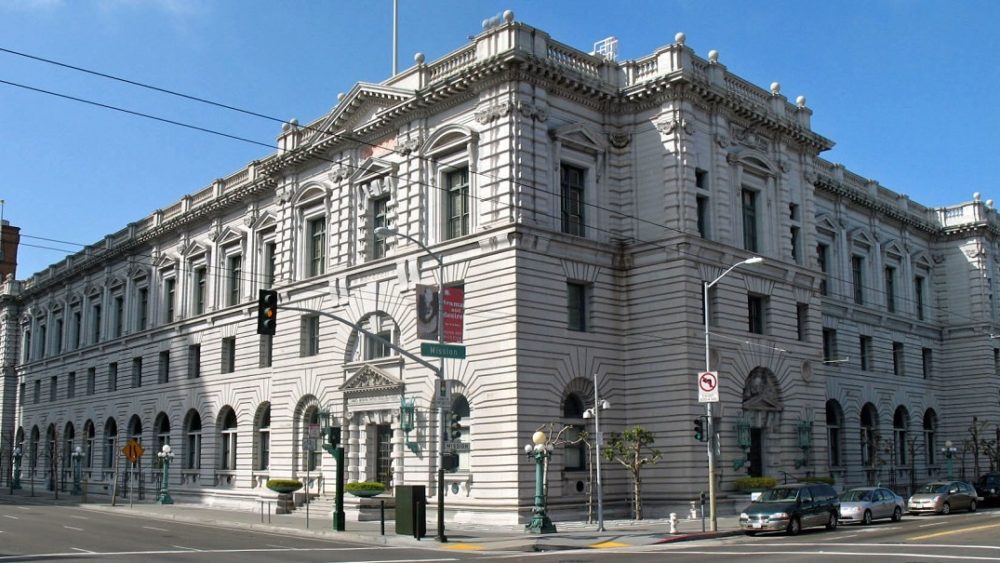
The James R. Browning U.S. Court of Appeals Building in San Francisco
The Ninth U.S. Circuit Court of Appeals upheld a Montana law requiring groups to register with the state as political committees if they run any kind of ad that refers to a candidate or ballot issue within 60 days of […]
The Ninth U.S. Circuit Court of Appeals upheld a Montana law requiring groups to register with the state as political committees if they run any kind of ad that refers to a candidate or ballot issue within 60 days of an election.
The state law requires any group to register and file disclosures once it spends $250 or more on ads or mailers referring to a candidate, political party, or ballot issue within 60 days of an election.
The National Association for Gun Rights challenged the reporting requirements as an unconstitutional restriction on free speech.
The association argued the law’s definition of electioneering communication was too broad and should apply only to materials that advocate directly for or against a candidate.
However, the appeals court said disclosure requirements should not be limited only to regulation of express advocacy.
The Montana law was meant to shine a light on campaign related spending by groups that don’t disclose their spending or donors.
The appeals court did strike down a portion of the Montana law requiring groups to have a treasurer who is a registered voter in Montana.
The court found that requirement was not substantially related to any important governmental interest.
The National Association of Gun Rights has not made a decision on whether to appeal the ruling.
May 1, 2019 •
Montana Legislature Adjourns Sine Die

Montana Capitol Building - gillfoto
The Montana Legislature adjourned Sine Die on April 25, 2019, three days before it was scheduled to adjourn on the 90th legislative day. During the session, Senate Bill 150 passed changing the method for filing and reviewing ethics complaints. The […]
The Montana Legislature adjourned Sine Die on April 25, 2019, three days before it was scheduled to adjourn on the 90th legislative day.
During the session, Senate Bill 150 passed changing the method for filing and reviewing ethics complaints.
The Legislature also passed Senate Bill 326 adding a new provision prohibiting campaign contributions from foreign nationals. Included in the prohibitions are expenditures for electioneering communications.
Other notable bills of the 375 passed during the 66th Legislature include a re-authorization of the state’s Medicaid expansion and several anti-abortion bills likely to be vetoed by Gov. Steve Bullock.
February 22, 2019 •
Supreme Court Won’t Hear Montana Case
This week, the Supreme Court of the United States declined to hear a case challenging the state’s Disclose Act, leaving in place a lower court ruling of constitutionality. The Disclose Act requires more heightened reporting by groups seeking to influence […]
 This week, the Supreme Court of the United States declined to hear a case challenging the state’s Disclose Act, leaving in place a lower court ruling of constitutionality.
This week, the Supreme Court of the United States declined to hear a case challenging the state’s Disclose Act, leaving in place a lower court ruling of constitutionality.
The Disclose Act requires more heightened reporting by groups seeking to influence elections, commonly referred to as dark-money groups.
The campaign disclosure act, challenged by Montanans for Community Development on first amendment grounds, has been an important policy for Gov. Steve Bullock and his administration.
This comes at a time when the Montana House of Representatives is considering House Resolution 2, a bipartisan resolution urging Congress to propose a constitutional amendment to overturn the U.S. Supreme Court’s 2010 Citizens United decision.
State and Federal Communications, Inc. provides research and consulting services for government relations professionals on lobbying laws, procurement lobbying laws, political contribution laws in the United States and Canada. Learn more by visiting stateandfed.com.

